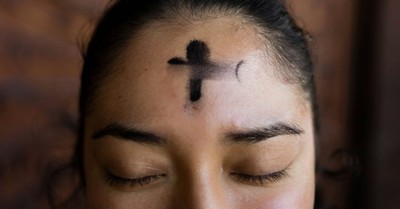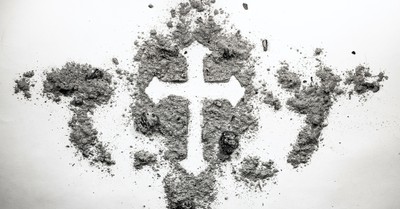2 Chronicles 20:1-21
The Victory over Moab and Ammon
201 After this the Moabites and Ammonites, and with them some of the Me-u'nites, came against Jehosh'aphat for battle. 2 Some men came and told Jehosh'aphat, "A great multitude is coming against you from Edom, from beyond the sea; and, behold, they are in Haz'azon-ta'mar" (that is, En-ge'di). 3 Then Jehosh'aphat feared, and set himself to seek the Lord, and proclaimed a fast throughout all Judah. 4 And Judah assembled to seek help from the Lord; from all the cities of Judah they came to seek the Lord. 5 And Jehosh'aphat stood in the assembly of Judah and Jerusalem, in the house of the Lord, before the new court, 6 and said, "O Lord, God of our fathers, art thou not God in heaven? Dost thou not rule over all the kingdoms of the nations? In thy hand are power and might, so that none is able to withstand thee. 7 Didst thou not, O our God, drive out the inhabitants of this land before thy people Israel, and give it for ever to the descendants of Abraham thy friend? 8 And they have dwelt in it, and have built thee in it a sanctuary for thy name, saying, 9 'If evil comes upon us, the sword, judgment, or pestilence, or famine, we will stand before this house, and before thee, for thy name is in this house, and cry to thee in our affliction, and thou wilt hear and save.' 10 And now behold, the men of Ammon and Moab and Mount Se'ir, whom thou wouldest not let Israel invade when they came from the land of Egypt, and whom they avoided and did not destroy-- 11 behold, they reward us by coming to drive us out of thy possession, which thou hast given us to inherit. 12 O our God, wilt thou not execute judgment upon them? For we are powerless against this great multitude that is coming against us. We do not know what to do, but our eyes are upon thee." 13 Meanwhile all the men of Judah stood before the Lord, with their little ones, their wives, and their children.
14 And the Spirit of the Lord came upon Jaha'ziel the son of Zechari'ah, son of Benai'ah, son of Je-i'el, son of Mattani'ah, a Levite of the sons of Asaph, in the midst of the assembly. 15 And he said, "Hearken, all Judah and inhabitants of Jerusalem, and King Jehosh'aphat: Thus says the Lord to you, 'Fear not, and be not dismayed at this great multitude; for the battle is not yours but God's. 16 Tomorrow go down against them; behold, they will come up by the ascent of Ziz; you will find them at the end of the valley, east of the wilderness of Jeru'el. 17 You will not need to fight in this battle; take your position, stand still, and see the victory of the Lord on your behalf, O Judah and Jerusalem.' Fear not, and be not dismayed; tomorrow go out against them, and the Lord will be with you." 18 Then Jehosh'aphat bowed his head with his face to the ground, and all Judah and the inhabitants of Jerusalem fell down before the Lord, worshiping the Lord. 19 And the Levites, of the Ko'hathites and the Kor'ahites, stood up to praise the Lord, the God of Israel, with a very loud voice.
20 And they rose early in the morning and went out into the wilderness of Teko'a; and as they went out, Jehosh'aphat stood and said, "Hear me, Judah and inhabitants of Jerusalem! Believe in the Lord your God, and you will be established; believe his prophets, and you will succeed." 21 And when he had taken counsel with the people, he appointed those who were to sing to the Lord and praise him in holy array, as they went before the army, and say, "Give thanks to the Lord, for his steadfast love endures for ever."


.jpg)

Matthew Henry's Commentary on 2 Chronicles 20:1-21
Commentary on 2 Chronicles 20:1-13
(Read 2 Chronicles 20:1-13)
In all dangers, public or personal, our first business should be to seek help from God. Hence the advantage of days for national fasting and prayer. From the first to the last of our seeking the Lord, we must approach him with humiliation for our sins, trusting only in his mercy and power. Jehoshaphat acknowledges the sovereign dominion of the Divine Providence. Lord, exert it on our behalf. Whom should we seek to, whom should we trust to for relief, but the God we have chosen and served. Those that use what they have for God, may comfortably hope he will secure it to them. Every true believer is a son of Abraham, a friend of God; with such the everlasting covenant is established, to such every promise belongs. We are assured of God's love, by his dwelling in human nature in the person of the Saviour. Jehoshaphat mentions the temple, as a token of God's favourable presence. He pleads the injustice of his enemies. We may well appeal to God against those that render us evil for good. Though he had a great army, he said, We have no might without thee; we rely upon thee.
Commentary on 2 Chronicles 20:14-19
(Read 2 Chronicles 20:14-19)
The Spirit of prophecy came upon a Levite in the midst of the congregation. The Spirit, like the wind, blows where and on whom He listeth. He encouraged them to trust in God. Let the Christian soldier go out against his spiritual enemies, and the God of peace will make him more than a conqueror. Our trials will prove our gain. The advantage will be all our own, but the whole glory must be given to God.
Commentary on 2 Chronicles 20:20-30
(Read 2 Chronicles 20:20-30)
Jehoshaphat exhorted his troops to firm faith in God. Faith inspires a man with true courage; nor will any thing help more to the establishing of the heart in shaking times, than a firm belief of the power, and mercy, and promise of God. In all our trust in the Lord, and our praises of him, let us especially look at his everlasting mercy to sinners through Jesus Christ. Never was an army so destroyed as that of the enemy. Thus God often makes wicked people destroy one another. And never was a victory celebrated with more solemn thanksgivings.